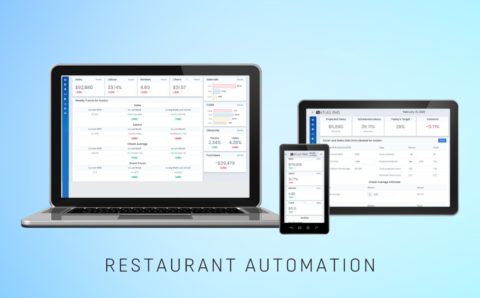
Django is a widespread Python-based framework that has achieved visible traction among enthusiasts. Due to its rich and robust feature kit, it gained popularity across 140 countries and regions. If you’re considering website or web application development for your business, Django provides a reliable and efficient platform for creating dynamic and scalable solutions. As an entrepreneur, you may struggle to estimate the cost to make a Django website, which is the topic we’ll disclose based on the core determining factors.
Table of Contents:
Benefits of Using Django for Web App Development
Django offers numerous benefits to web development that have made it one of the top ten most popular frameworks according to StackOverflow.
Flexible
Django offers a flexible development environment, empowering developers to create websites with diverse functionalities. With a comprehensive range of built-in features, such as authentication mechanisms, database management, URL routing, and a templating engine, developers have the borderless opportunity to design custom and sophisticated web applications tailored to specific business requirements.
Secure
Guaranteeing failure-resistant security is a critical point of any web solution. Django incorporates numerous security features that protect against common web vulnerabilities like cross-site scripting (XSS), cross-site request forgery (CSRF), and SQL injection. Leveraging these security strategies, Django significantly reduces the risk of potential breaches and safeguards user data.
Multi-purpose
Django’s versatility caters to a great diversity of website types as well as industries, ranging from plain solutions to complex enterprise platforms. The framework’s modular design allows the integration of additional packages for specialized functionalities, making it suitable for a wide range of web development projects.
Object-oriented
By following the object-oriented programming paradigm, Django promotes code reusability and maintainability. This approach simplifies the development process by enabling developers to reuse existing components, libraries, and modules, achieving more efficient website construction. The reusable specificity of Django code translates to spent time and cost significant economy during the development phase.
Required skills for Django developers
A professional Django developer should possess a vital list of hard and soft skills that ensure high-quality performance and an optimized software development lifecycle.
Hard skills
Needless to say, to build a website with Django, software engineers must have a strong understanding of Python programming language fundamentals. Knowledge of web development concepts and understanding of front-end technologies is also highly beneficial. Familiarity with SQL database management systems, such as PostgreSQL or MySQL, is essential for efficient data handling. Additionally, comprehension of Django’s core components, including models, views, templates, and forms, is crucial for effective development.
Soft skills
In addition to technical expertise, there are certain soft skills for developers that can ensure successful project execution. Strong problem-solving abilities, effective communication, and collaboration skills are vital for working in a team environment. Attention to detail and adaptability to changing requirements are also crucial traits for delivering high-quality web applications.
Entrepreneurial mindset
Django developers with an entrepreneurial mindset can bring added value to web development projects. By possessing business acumen and understanding the client’s objectives, developers can align the website’s functionalities with the business goals. This approach helps create websites that not only meet technical requirements but also contribute to the overall success and prosperity of the business.
Assemble Your Django Team
Learn the secrets to building a high-performing Django development team. Our guide shows you how.
Python web development cost factors
When planning a Django web development project, it is essential to consider various factors that can influence the overall cost.
Features
The complexity and functionality of your web application significantly impact the overall Django development cost. The more features and functionalities you require, the more time and effort developers need to invest. The features like user authentication, real-time updates, payment gateways, and complex data processing can contribute to increased development costs. Carefully consider the features you need and prioritize them based on your business requirements and target audience.
Third-Party integration
Integrating third-party services into your Python web application can enhance its capabilities. However, integrating with external systems or platforms can extend the complexity of the development process. The price will depend on the complexity of the integration, the availability of APIs, and the need for customization. Popular third-party integrations may have pre-built libraries or plugins that simplify the process, while custom integrations require additional development time and effort.
Design
The visual appeal and user experience of your web application play a crucial role in its success. The cost of design depends on various factors, including the complexity of the design, the number of pages, and the level of interactivity. Customized designs, unique illustrations, and animations may require additional design resources and contribute to higher development costs. Balancing aesthetic appeal with usability and ensuring responsive design for different devices is essential for a successful web application.
Developer location
The geographical location of your development team can significantly impact the overall cost. Development rates vary across countries and regions due to differences in labor costs. Hiring a development team from countries with lower labor costs, such as Eastern Europe, Southeast Asia, or Latin America, can potentially reduce your expenses. However, when considering offshore development, it’s important to ensure effective communication, collaboration, and quality assurance processes to achieve successful project outcomes.
How to calculate Django development cost
As we’ve outlined, estimating the cost of Django development is a crucial step in planning a web application project. It ensures proper resource allocation and budgeting for the development process. There are several approaches to project execution. Understanding these models will enable you to select the most suitable option according to your project’s unique requirements.
Fixed price
This model implies determining a set cost for the entire Django development project. This approach works well for projects with clearly defined scope and requirements. However, accurate estimation requires a comprehensive understanding of project complexity, desired features, and potential challenges. Thoroughly documenting project requirements is essential to avoid misunderstandings and scope creep during the implementation.
Hourly pay-based
It is widely favored for calculating Django development cost. Developers provide an hourly rate, and the cost is calculated based on the number of hours worked. This approach offers flexibility and transparency, allowing for adjustments to project scope and requirements as needed. It is particularly suitable for projects with evolving or less-defined specifications, as it accommodates changes throughout the development process.
Monthly fee
Also called the retainer model, it is traditionally applied when the client and development team anticipate a long-term cooperation lasting over six months. In this model, the client pays a fixed monthly fee to retain the services of the development team. The fee covers a specific number of hours or a set range of services per month. This approach provides stability and ongoing support with ticketing bugs and enhancements, making it ideal for long-term projects or continuous maintenance and updates.
Time and material
The time and material approach combines aspects of both the fixed price and hourly pay-based approaches. It involves setting a budget and paying based on the actual time and materials used during development. This approach allows flexibility in project requirements and accommodates changes while maintaining cost control. It works well when the project scope is subject to frequent modifications or requirements are not entirely determined upfront.
Django developers’ hourly rates by regions
The precise estimate can’t be completed without taking into account the hourly rate of software engineers all around the world. Django staff cost is variable, and the service quality doesn’t imply that it is always costly.
| Region | Hourly rate range | Annual rate (assuming 40-hour work week) |
| United States | $50 – $150 | $104,000 – $312,000 |
| India | 25 | $52000 |
| Europe | $35 – $60 | $72,800 – $124,800 |
| United Kingdom | 65 | $135200 |
| Australia | $65 – $80 | $135,200 – $166,400 |
| Canada | 60 | $124800 |
Please note that the hourly rates provided in the table are approximate and can vary based on factors we’ve priorly mentioned. Additionally, the annual rates are calculated based on a 40-hour work week and the average cost of a mid-level Django programmer. Besides, the table doesn’t include additional benefits or expenses. It’s always recommended to discuss the rates and project details directly with the developers or development firms to get accurate and up-to-date information.
To get a more accurate estimate tailored to your specific project, you can use our calculator to calculate the development cost based on your project scope, features, and developer location.

Restaurant Management
Introduced a comprehensive cloud system for restaurant management, automating tasks and centralizing data to enhance efficiency and profits.

Robot Factory
With Robot Factory software, insurance brokers can automate document management, saving hours and accelerating workflows by 90%.

MusicTeam
We enabled MusicTeam to launch v1, offering artists effective metadata tools and securing a grant to boost cultural development initiatives.
Examples
Django has proven its prowess in developing high-traffic web applications with rich functionality through illustrations like Instagram, Pinterest, and Disqus. It is a valuable tool for many domains and market sectors striving to follow the digitalization path. For better guidance, we can estimate the cost of popular web app types.
| Web App Type | Cost Determining Factors | Rough Cost |
| eCommerce app | Complexity of features, integration with payment gateways, product catalog size | $20,000 |
| Customer Relationship Management app | Customization requirements, integration with third-party APIs, user management features | $50,000 |
| Portal apps | Scale of functionalities, user roles and permissions, integration with external systems | $100,000+ |
| Data visualization Apps | Data complexity, visualization requirements, interactive features | $15,000+ |
| Content Management Systems | Customization options, content publishing workflow, integration with media assets | $15,000+ |
| Enterprise applications | Scale and complexity of business processes, integration with existing systems, security requirements | $100,000+ |
Bring Your Django Vision to Life
PLANEKS transforms ideas into successful Django applications. Let’s build your next web solution.
Django web development cost-saving tips
To cut development costs, you can apply various strategies that can significantly decrease the Django cost of web development. By adopting these tips, you can enhance productivity, reduce development time, and ultimately lower costs without compromising the quality and functionality of your future software.
Define your goals
Before starting any project, you should formulate your objectives, and product purposes, prioritizing the features and functionalities you require. By having a well-defined scope, you can avoid unnecessary development expenses associated with feature excessiveness and frequent modification within the development and cost to deploy a Django web app.
Opt for offshoring
Offshoring your Django web development can significantly reduce costs without compromising the quality of services you are delivered with. Many countries have a pool of skilled Django developers who offer competitive rates. By partnering with an offshore development team, you can achieve cost savings while maintaining high standards.
Conduct regular tests
Testing is an integral part of the software development lifecycle. By conducting regular tests, you can identify and fix issues early, saving both time and money. Automated testing frameworks, such as Django’s built-in testing tools, can help streamline the testing process and ensure the stability and reliability of your web application.
You can always apply to a reliable software development vendor like PLANEKS to achieve an accurate cost estimate taking into consideration your particular project requirements. Our dedicated team is ready to negotiate your business goals and provide you with precise cost calculations.


